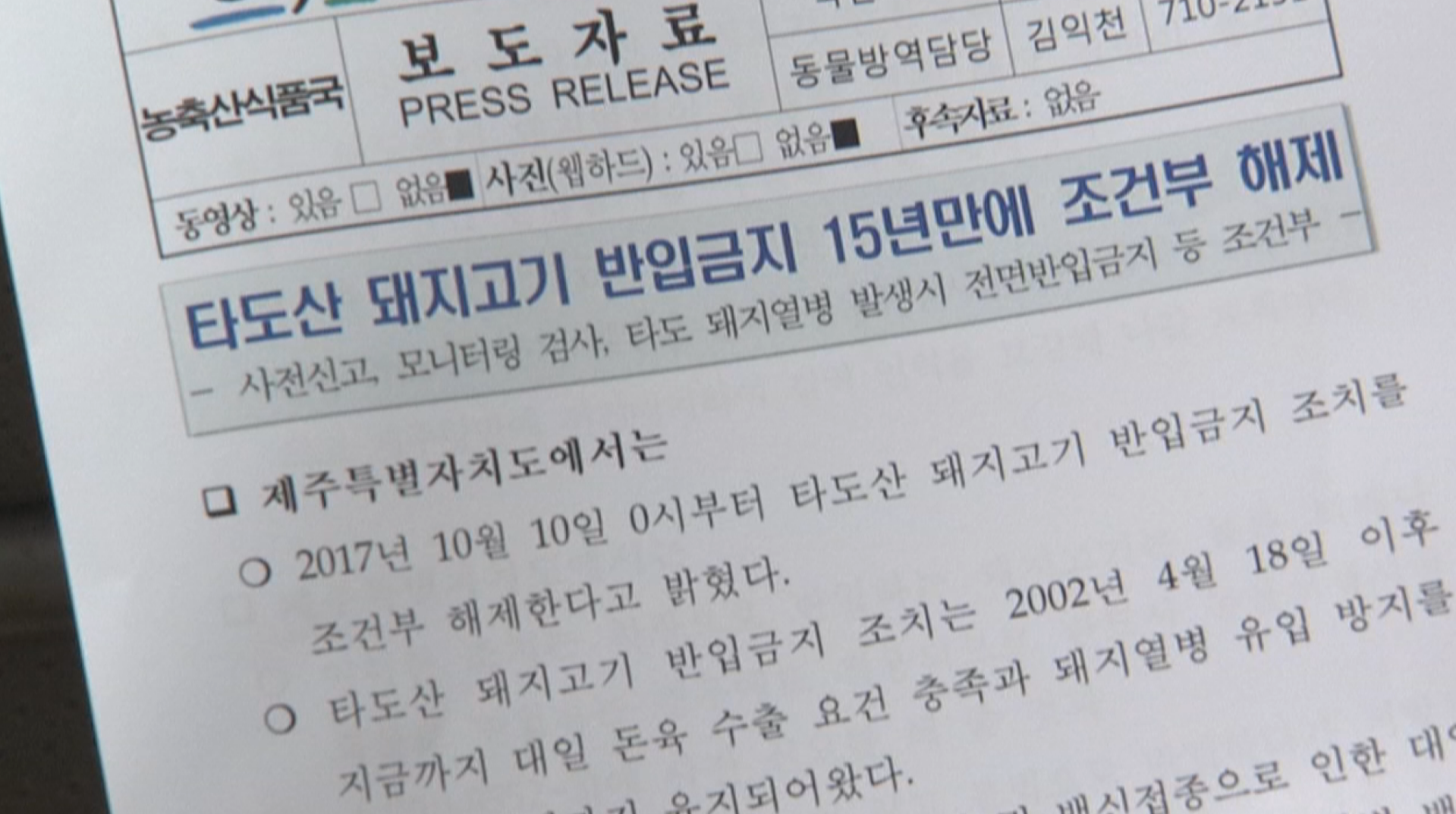
The provincial government recently lifted an import ban on pork from the mainland. It had been in place for more than a decade. Joseph Kim has the details.
Report
The price of pork belly from the island is 20,000 won per kilogram. That’s about 8,000 won higher than pork belly from the mainland of Korea.
[slug]
Pork import ban instituted in 2002
Jeju residents have had to pay a high price for pork for the past 15 years since local officials banned pork imports in 2002.
[slug]
Residents filed petition to have ban lifted
Improper management of animal waste by farm owners caused public anger.
Some of the people who live near island hog farms have filed a legal petition questioning the constitutionality of the provincial government’s ban on pork imports from other areas of the country.
Last month, the province held meetings with experts and decided it will lift the pork import ban beginning October 10th.
Recording
Yi Woo-cheol / Dir., Provincial dept. of food and agriculture
We decided to allow pork shipments from the mainland to give consumers more choice. Local farmers will have to compete with farmers in other areas of the country.
<씽크:이우철/제주도 농축산식품국장>
"타지역과 제주산을 소비자들이 선택할 수 있도록 부여했고 도내 양돈농가 입장에서도 육지산 돼지고기와 선의의 경쟁을 통해서.."
Except for livestock, carcass and edible pork by-products are allowed to be shipped into the island.
[slug]
Changes likely in local pork market
The policy change is expected to shake up the local pork market. Currently, 60 percent of pork in the market comes from Jeju and the remaining 40 percent comes from other countries.
[slug]
‘Consumer rights’ vs. ‘Danger of animal diseases’
Some support the island’s decision saying it will give local consumers the right to make their own choices.
Meanwhile, others say there is a concern that animal diseases could also be imported.
Companies that want to import pork products must first fill out a form, which includes the amount and origin of the exact items they want, as well as the harbor from which they will be shipped to Jeju. That information must be submitted to the Provincial Animal Hygiene Office at least 3 days before shipment.
Cleaning and disinfecting trucks and workers’ outfits are mandatory and all of the imported pork products are required to be tested for swine fever virus.
If swine fever breaks out on the mainland, pork shipments will be banned immediately.
The province deployed inspectors to harbors to ensure imported pork is free from the animal disease.
Recording
Yi Woo-cheol / Dir., Provincial dept. of food and agriculture
The Provincial Animal Hygiene Office has a new quarantine division, and inspectors are being deployed at Jeju Harbor.
<씽크:이우철/제주도 농축산식품국장>
"최근 조직개편을 통해 동물위생시험소에 검역 담당을 신설하고 제주항에 전진배치해서 검역 인력을 보강할 계획입니다."
[Reporter] Joseph Kim
[Camera] Moon Ho-seong
Those who intentionally put wrong labels about origin or illegally ship pork from the mainland will face a maximum fine of 10 million won and will have to return or discard the pork.
Joseph Kim, KCTV






